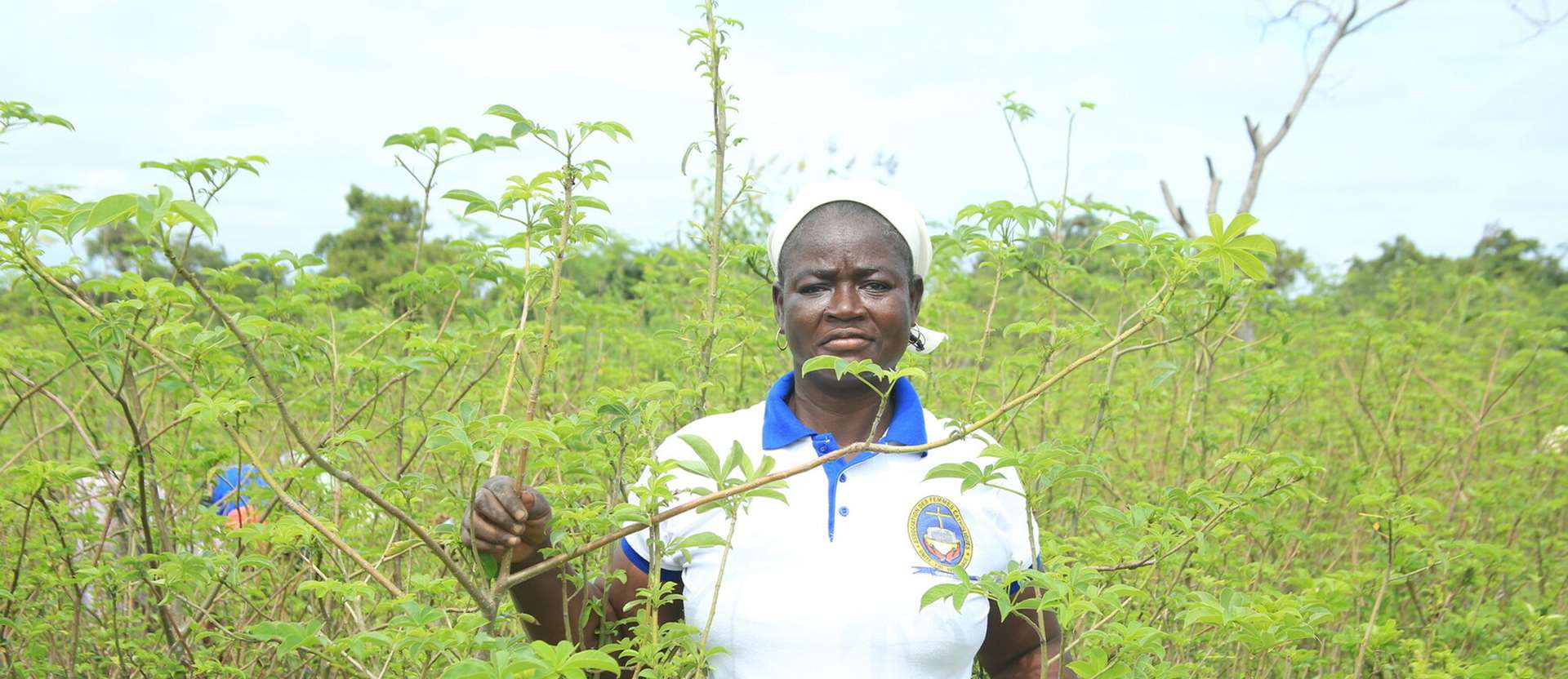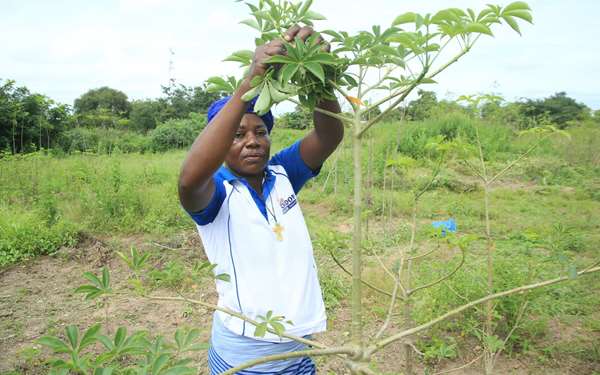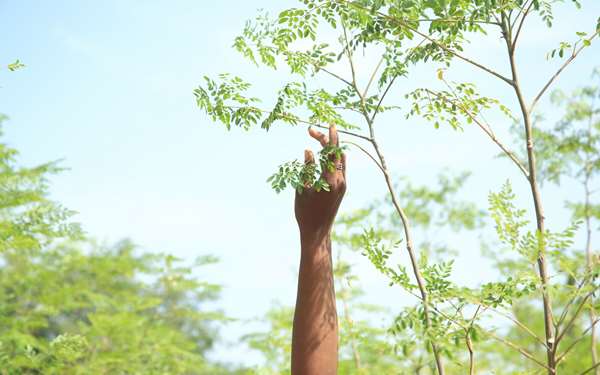
Doli's story
31st March 2022
Combatting the climate crisis with ‘super trees’ in rural Burkina Faso
The increasingly unpredictable climate in rural Burkina Faso, which spans from extended droughts during the dry season, to devastating floods in the rainy season, means that farmers like Doli Tapsoba have had to adapt.
In the village of Sapouy, Doli juggles an impressive number of enterprises, trading soap, salt and shea nuts, as well as being a market gardener and farmer.
Doli’s grown-up children now work away from the village, meaning she and her husband must work alone on the family farm. As farmers on the frontlines of the climate crisis, the work is hard – soil degradation and flooding have caused real destruction on the farm in recent years.
Doli told us about one particularly difficult season, when a flood washed away all of their seeds and valuable topsoil just one day after planting them, reducing their farmable land to just less than a hectare. What’s more, Doli’s trading work often requires carrying ingredients from towns across the border in Ghana, which can involve expensive customs fees.
Trees as climate resilience in the drylands of Sapouy
We first met Doli in 2018, when she became involved in Tree Aid’s nutrition garden project in Sapouy.
These gardens are the focus of our new Leaves for Livelihoods appeal, raising funds to expand our projects across Africa’s dryland communities. The gardens comprise of small communal village plots dedicated to cultivating fast-growing, drought-resistant and nutritious trees like moringa and baobab.
The leaves of the moringa and baobab trees can be sold as dry leaves or processed powder at local markets – delivering training on how to process these products for sale is a key part of Tree Aid’s nutrition garden projects, and comprises part of our Enterprise Development approach.


Since joining the project...
...Doli has been able to use the nutrition garden to supplement her income from farming and making soap by selling baobab from Sapouy’s garden at the local market. Doli told us how she was particularly drawn to the project because of her difficulty sourcing products and ingredients from other towns. Having a local, communal garden to pick from, she is now able to save both money and time:
“We are really spoilt regarding the availability of condiments here in Sapouy. Since we made the nutrition garden, I no longer buy condiments in the market – we now spare the money we used to buy the baobab. Last year, we had a turnover of 300.000 CFA Francs, so this is really huge for us!”
With the addition of these local, climate-resilient trees, the garden has helped Doli ensure a lower-risk source of income that can help support Doli’s through some of the unexpected shocks of climate change.
The Miracle of Moringa – improving dietary diversity
It’s not just incomes that the nutrition garden has been benefitting in Sapouy. Since having improved access to nutritious food, Doli has seen changes to her health too.
Moringa leaves now make up part of Doli’s daily routine to address her high blood pressure: “I pick the leaves of moringa out, pound it, and eat – and today, I have very good health.”
High blood pressure is a crisis affecting around a third of all people in Burkina Faso, and around 1.5 million people have or are at high risk of heart disease.
As a ‘super tree’, moringa is a winning choice for Tree Aid’s projects across the drylands of West Africa. In fact, you might be shocked to hear how much nutrition this incredible tree manages to pack into its leaves. For comparison, just 100g of moringa leaves contain as much protein as an egg, as much calcium as a glass of milk, and as much iron as a 200g beef steak!
Doli isn’t the only project participant who has been feeling the benefits of ‘miracle moringa’. Since 2017, there has been an 8% reduction in undernourishment amongst those involved in Tree Aid’s nutrition garden projects. Since our nutrition garden projects started, we’ve supported over 6,000 people to increase their dietary diversity in Burkina Faso!


Growing community spirit through the help of nutrition gardens: “When we are together, we can really do great things”
Doli also told us how Sapouy’s nutrition garden has provided a great place to bring the local community together. As a result, her local association has flourished with the use of the nutrition garden:
“We have learnt a lot of things on associative life through the actions of Tree Aid… Before, we worked alone - it was difficult for us to get together to work without quarrels happening, but with the teachings we received from Tree Aid, our association works very well - I see a bright future for us.”
Sapouy’s community garden has become a gathering place for the association, providing opportunities to meet whilst tending the plot – “in the garden, we are on good terms - we organize workshops and meetings here; every 3 weeks, we get together. When we meet one another, we pick and harvest the leaves we sell at the same time.”
